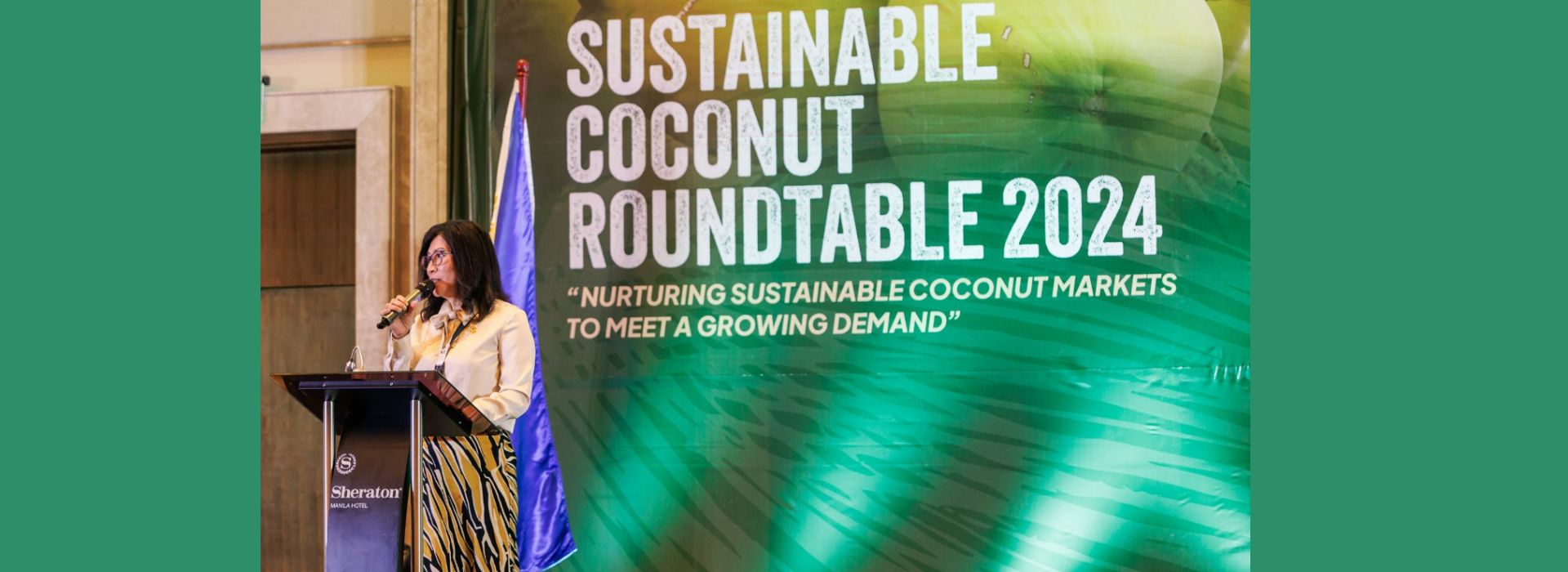The Sustainable Coconut Roundtable 2024, held on September 26-27 at the Sheraton Manila Hotel, Philippines, brought together key stakeholders from the coconut industry to discuss the future of sustainable coconut markets. Organized by the Sustainable Coconut Partnership, a multi-stakeholder initiative dedicated to building a responsible and resilient coconut sector, the event addressed critical challenges and opportunities in the sector, with participation from industry leaders and experts.
Dr. Jelfina C. Alouw, the Executive Director of the International Coconut Community (ICC), served as a resource speaker, delivering a presentation titled “Global Scenario of the Coconut Sector”. During her talk, Dr. Jelfina provided valuable insights into current trends, production challenges, and market opportunities, particularly focusing on the expanding demand for coconut products in Europe and the United States. Drawing on global data, she emphasized the need to leverage the growing export potential for new products such as coconut water, virgin coconut oil, and coconut milk, underscoring their strong market outlook. In a panel discussion themed “Beyond the Horizon: Trends Shaping Sustainability in the Coconut Industry, a Look into Possible Futures”, Dr. Jelfina highlighted key factors affecting coconut production in different countries, including senile palms, pests, and climate change. She advocated for country-specific strategies to address these challenges, emphasizing that identifying unique causes and implementing tailored solutions would be crucial for overcoming production stagnation.

A significant point in her address was the current non-inclusion of coconut products in the European Union Deforestation Regulation (EUDR), which she pointed out as a major opportunity for coconut-producing nations. She urged stakeholders to capitalize on this advantage to boost their market share. Dr. Jelfina also touched on one of the critical issues facing the industry: the lack of youth engagement. She stressed that the absence of younger generations in coconut farming posed a long-term risk to the sector. To address this, she introduced the ICC's Youth Empowerment Program, aimed at involving and empowering young individuals to ensure the sustainability of the coconut industry.
The event saw active participation from ICC member countries, including representatives from the Philippines Coconut Authority, farmers, and producers. Through her participation, Dr. Jelfina reinforced ICC’s commitment to addressing global challenges and exploring opportunities for sustainable growth in the coconut sector. ICC Assistant Director, Mr. Nuwan also took part in the event.


